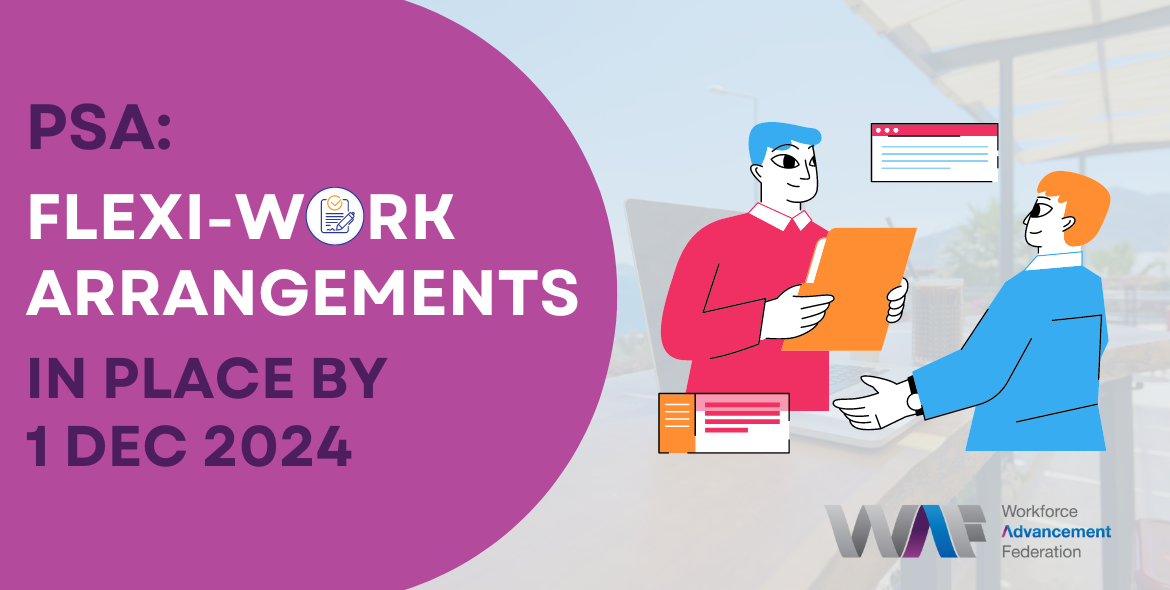PSA: Flexi-Work Arrangements to Be in Place by 1 Dec 2024
In case you missed the news – the Government has accepted all recommendations by the Tripartite Workgroup on Flexible Work Arrangement (FWA). So, what does this mean for your company?
In summary, these guidelines are in place to make it easier for employees to request flexible work arrangements, while acknowledging that there are limitations based on your industry and the nature of your company’s operations.
FWA Requests by Employees
Based on the recommendations by the Tripartite Workgroup, employers should have a clear process for employees to make a formal FWA request (e.g. via email or a work portal or the inclusion of mandatory information), which should be properly considered by the employers.
To make a formal FWA request, employees need to have completed their probation and ensure that their request contains all information required as stipulated by the employer. If no stipulations are in place, then their request needs to contain: the date, the FWA requested (e.g. expected frequency and duration), the reason for the request, and the requested start and end date of the FWA (if relevant).
However – employees are also expected to make requests responsibly, ensuring no impact on their workload, performance, team, and clients.
Reviewing Formal FWA Requests

Employers can consider various factors such as the viability of the processes and impact on productivity. Wherever possible, employers are expected to explore ways to accommodate the requests.
Any consideration and discussion around the employees’ FWA request should also be done in an open, constructive, and unbiased manner.
For example, employers are allowed to reject FWA requests if the arrangement is impractical / unfeasible or is highly detrimental to the employee’s productivity or output, but they cannot reject the requests based on personal beliefs or reasons not directly linked to business outcomes – e.g. if the employer does not believe in FWAs, if they prefer to keep employees within direct supervision in the office, etc.
After the consideration, the employer is required to provide a written decision within tow months of receiving the request. If rejected, the reason for the rejection should be clearly included as well.
A More Flexible & Progressive Workplace
In conclusion, the arrangements for the above process will have to be put in place by 1 December 2024.
The goal is to ultimately achieve a more flexible and progressive workplace that can result in greater satisfaction and enable employees to work while juggling family responsibilities such as caregiving, which will become increasingly prevalent as our society ages. Employers who offer FWAs are also better able to tap on a greater pool of manpower and retain employees in a tight labour market.
For more detailed information on FWA, you can read more in the MOM press release here.


